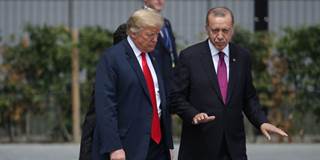
Tough Times for the Tough Guys
Authoritarian leaders worldwide are confronting mounting crises of their own making. But while Chinese President Xi Jinping and Russian President Vladimir Putin face slower-brewing challenges, Turkish President Recep Tayyip Erdoğan and US President Donald Trump seem to be bringing matters in their respective countries to a head.
TARN, FRANCE – Shares in strongman leaders seem to be falling. The market has not yet turned bearish, but autocrats have little reason to feel bullish.